Alright – so today we’ve got the honor of introducing you to Micah Christian. We think you’ll enjoy our conversation, we’ve shared it below.
Micah, thanks for joining us, excited to have you contributing your stories and insights. Do you feel you or your work has ever been misunderstood or mischaracterized? If so, tell us the story and how/why it happened and if there are any interesting learnings or insights you took from the experience?
As young black men in a classical-crossover quartet (harp, cello, keyboard, and vocals), we have always recognized the potential of being mischaracterized or misunderstood.
One particular moment happened back when Sons of Serendip initially formed. We were on our way to the America’s Got Talent (AGT) auditions at Madison Square Garden in New York City, and when we arrived, we noticed that there were two events happening at the venue: a basketball tournament and the AGT auditions. We looked to see where we needed to be for our audition, and we began to walk in that direction with our instruments — a concert grand harp and cello. As we approached the check-point for the auditions, seemingly out of nowhere, a security guard rushed over and said, “Sorry fellas, but this section is for the America’s Got Talent auditions, the basketball tournament is over that way!” And she quickly pointed toward the entrance to the basketball tournament. Standing there with a concert grand harp and a cello, we all looked at her for a moment and then I said, “We are here to audition for America’s Got Talent.”
Afterwards, we laughed about it and have shared that story at many of our concerts. Over the years, we have had a number of other such experiences; we recognize that we do not fall neatly into popular assumptions and stereotypes, but we fully embrace it.
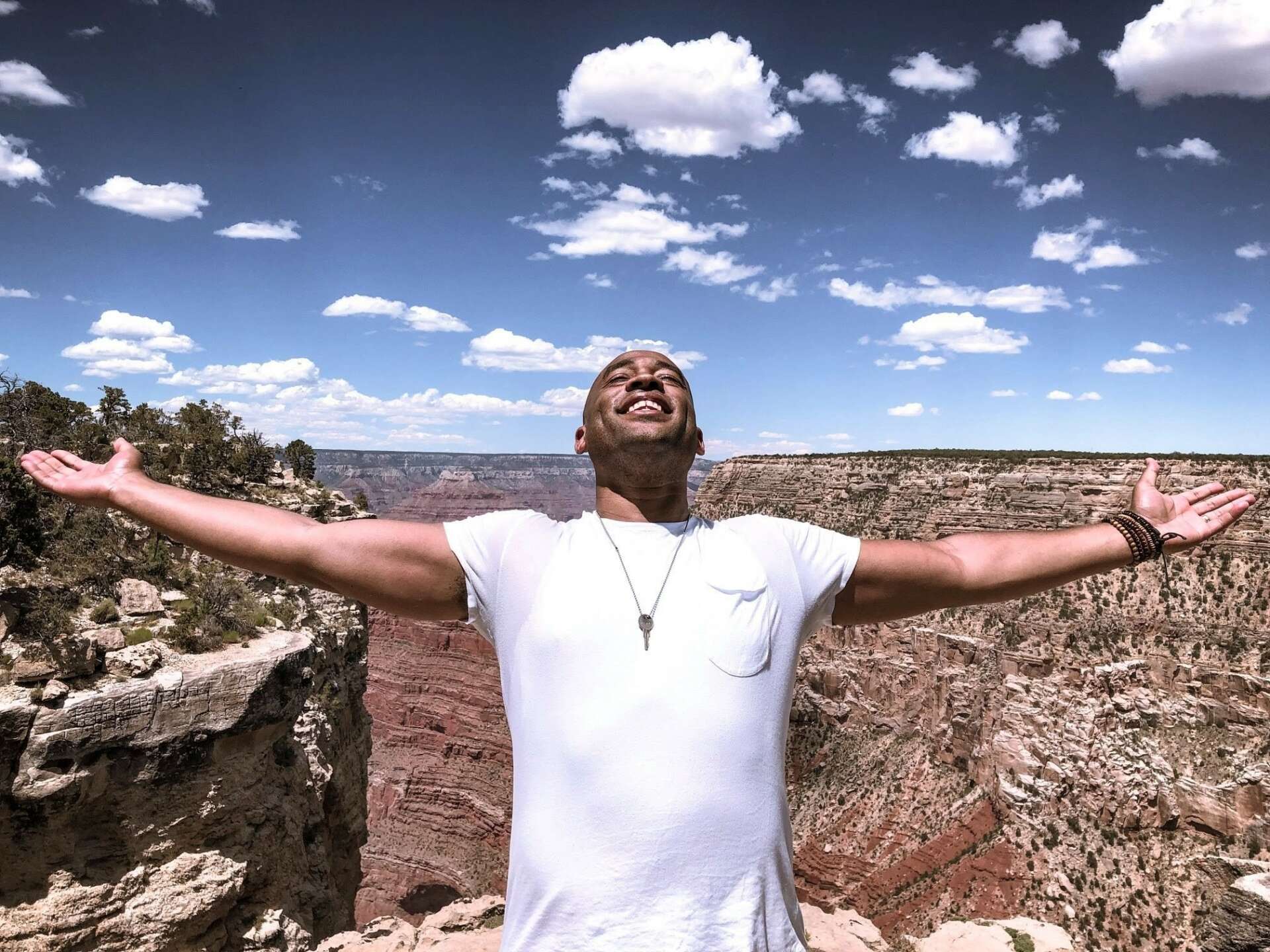
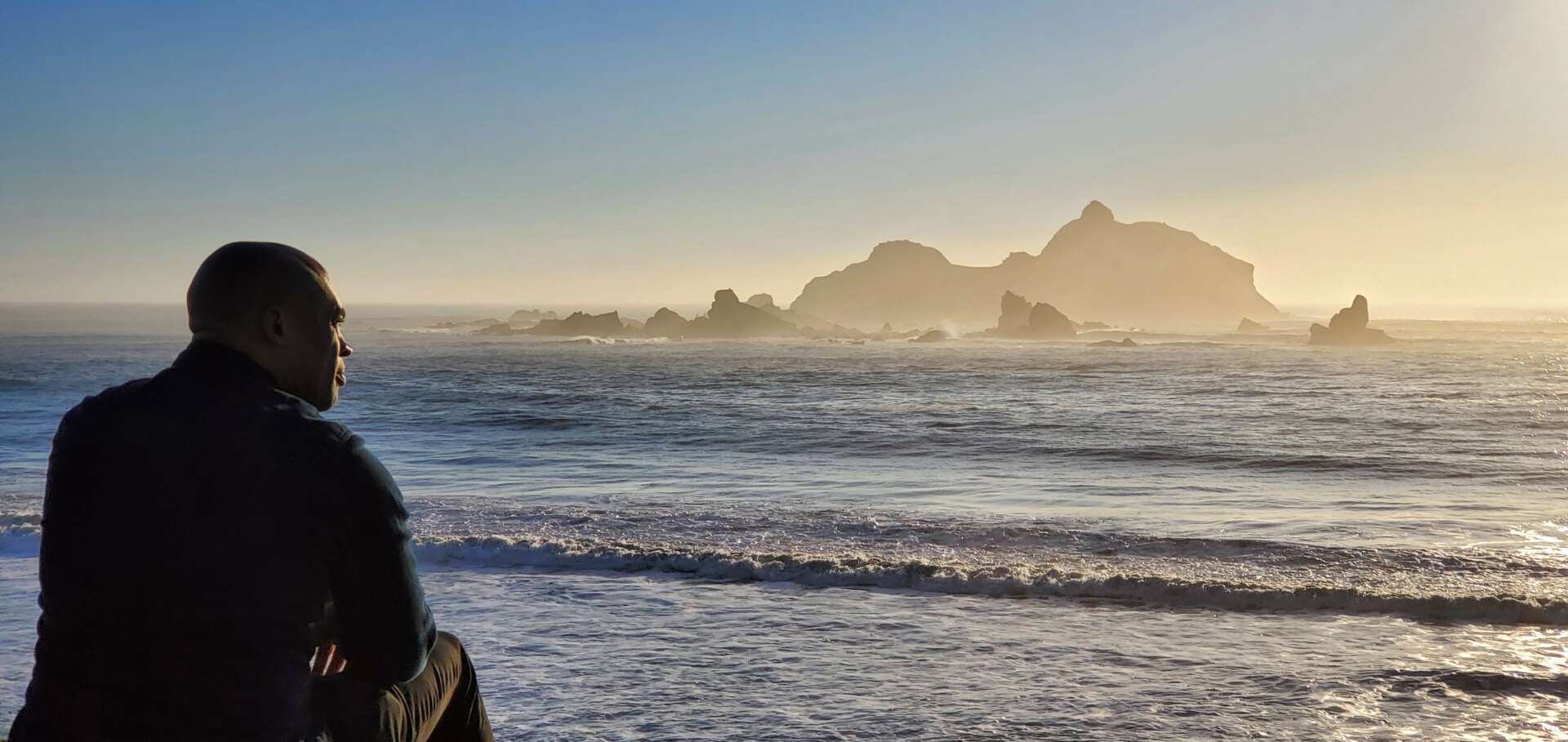
As always, we appreciate you sharing your insights and we’ve got a few more questions for you, but before we get to all of that can you take a minute to introduce yourself and give our readers some of your back background and context?
My name is Micah Christian, and I am a Los Angeles-based artist passionate about storytelling, composing, and performing music that supports, enhances, and creates “moments.” I am a co-founder and the lead vocalist of America’s Got Talent Finalist, Sons of Serendip.
Sons of Serendip is a unique classical-crossover quartet that features a harp, cello, keyboard, and vocals. Over the past 9 and half years, we’ve been on a beautiful journey of recording and performing both nationally and internationally for audiences of various ages, backgrounds, and experiences. Our concerts include a mix of creative arrangements of popular music and originals, as well as humorous and reflective storytelling. There is an arch to the music and storytelling at our concerts, and the hope is that through this experience, we’re able to connect deeply with the audience and share a moment that they would find meaningful.
Some of the highlights of our journey together would include collaborations with the Boston Pops, Cincinnati Pops, Cynthia Erivo, opening for John Legend and Jay Leno, as well as performing for the Creative Arts Emmy Awards, Oprah Winfrey’s 2020 Vision Tour closing celebration, and the Dubai Expo 2020.
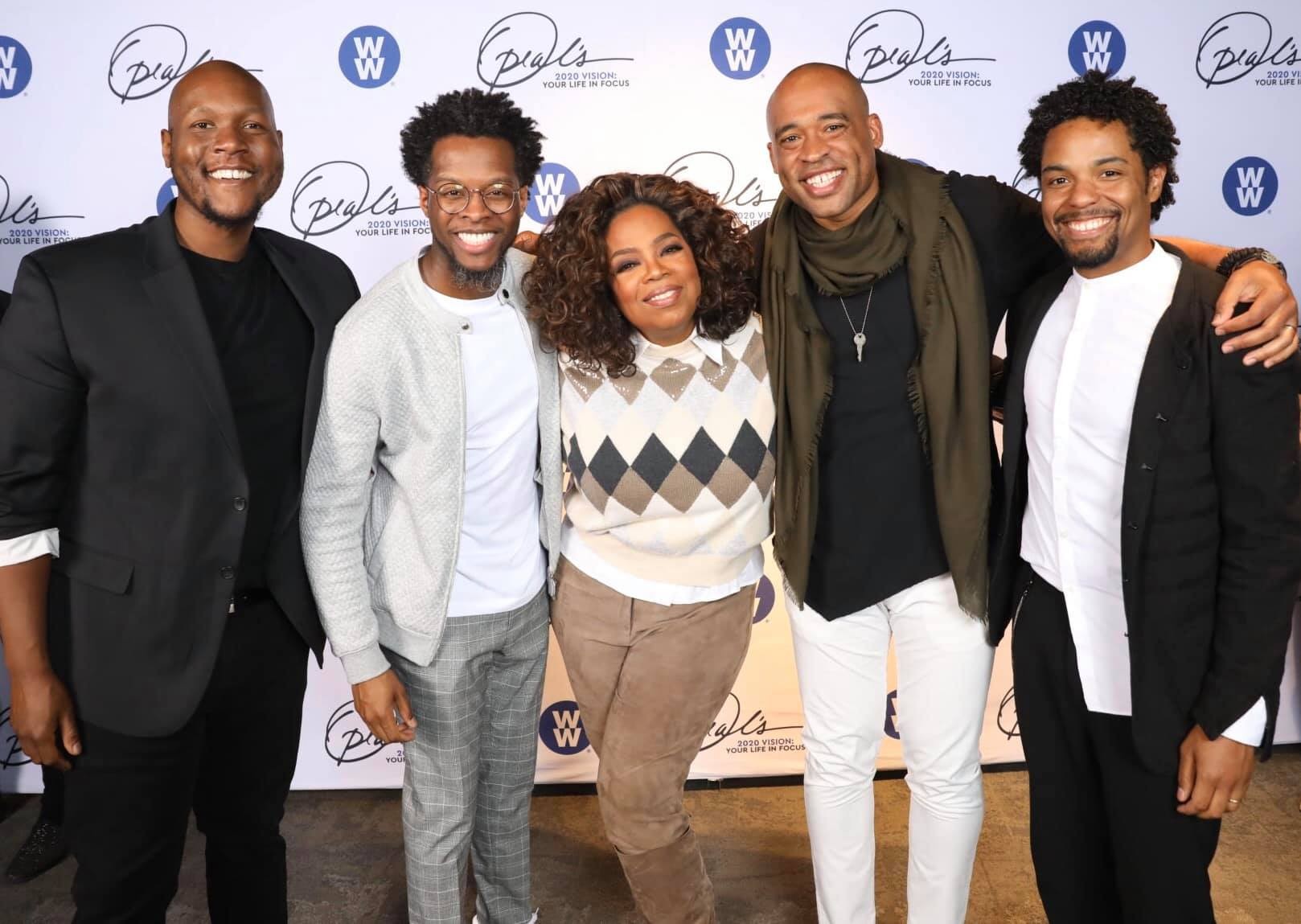

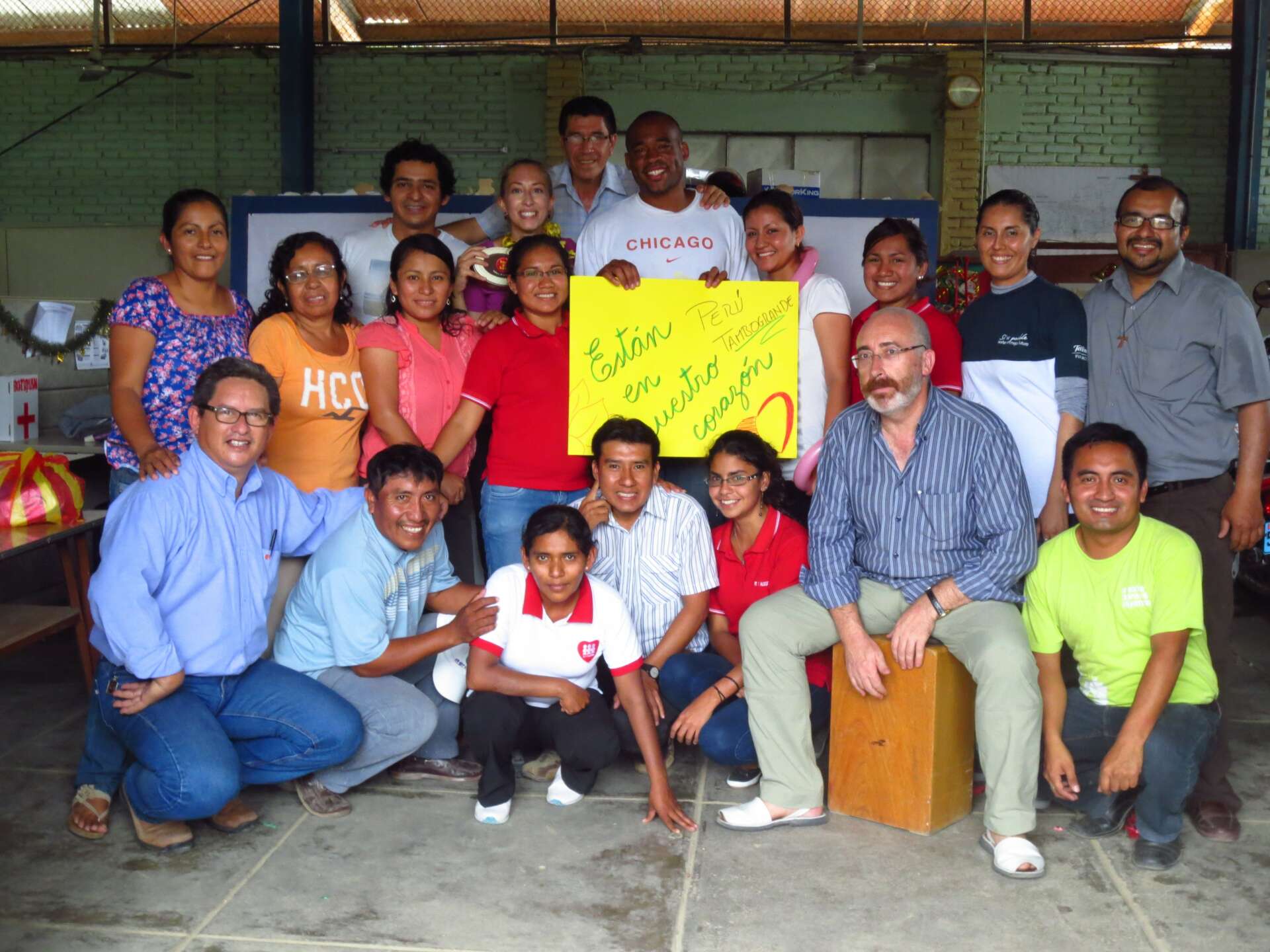
How about pivoting – can you share the story of a time you’ve had to pivot?
Howard Thurman said, “Don’t ask yourself what the world needs. Ask yourself what makes you come alive, and go do that, because what the world needs is people who have come alive.”
Music had always been a part of my life; it was what made me come alive, but it was not always the focus of my life. Before becoming an artist, I was heading in a very different direction.
I spent most of my 20s exploring and searching for my path. After college, I volunteered for a year in Honduras. When I returned home, I worked at a Boy & Girls Club, I taught ESOL in an international school, and I spent a month volunteering in Calcutta, India with Mother Teresa’s Missionaries of Charity. I ultimately decided to attended seminary at Boston University School of Theology, thinking that I would go into full-time ministry. All the while, music was not a central part of my life.
After seminary, still without a clear path in sight, my wife and I decided to volunteer for a year with the Notre Dame Mission Volunteers, where we were sent to live and work in a village in northern Peru. That decision was pivotal and would change everything. Although we were there to support the work of the religious Sisters, we had a lot of inner-work to do as well. That was not an easy year for us on a number of levels.
About six months into our year commitment, we were contemplating returning home because of how much of a challenge the year had become for us emotionally. Around that time, we met with the head Sister to talk about our options. During the meeting, in a moment of frustration, I asked her, “Is our work of any value to you? You don’t tell us we’re doing a good job. Or give us feedback of any kind. What are we doing here?” She looked at me and said something that I will never forget: “Micah, you need to stop waiting for me or anyone to tell you that you’re doing a good job or that your work is of value. You need to look within yourself, find value in your own work and just do it. Just do it.” At first it only fueled my frustration. But after some time of reflection, I realized that those words were meant for me; they were exactly what I needed to hear.
Later that night, I wrote down some of the things for which I had been waiting for validation, and music was at the top of the list. While reflecting more on this, I realized that I had pushed music to the margins of my life because I had spent so long comparing myself to others, instead of looking within and finding value in my own gift and embracing what I have been given to share. At that moment, I made a commitment to sing and create music, not for fame or ambition, but for love; it was and is what makes me come alive.
My wife and I decided to stay the rest of that year, and our relationship to the Sisters, to our work, and to the community drastically shifted in a more positive direction for the second half of the year.
When I returned home, within months, Sons of Serendip had formed, and we found ourselves on stage at Radio City Music Hall performing in front of 12 million people for the America’s Got Talent Season Finale.
While in Peru, I could not have imagined the impact of those liberating words that the Sister shared with me that day. But here we are, almost 10 years later, and I am grateful to still be doing what makes me most come alive — creating, sharing, and performing meaningful music.

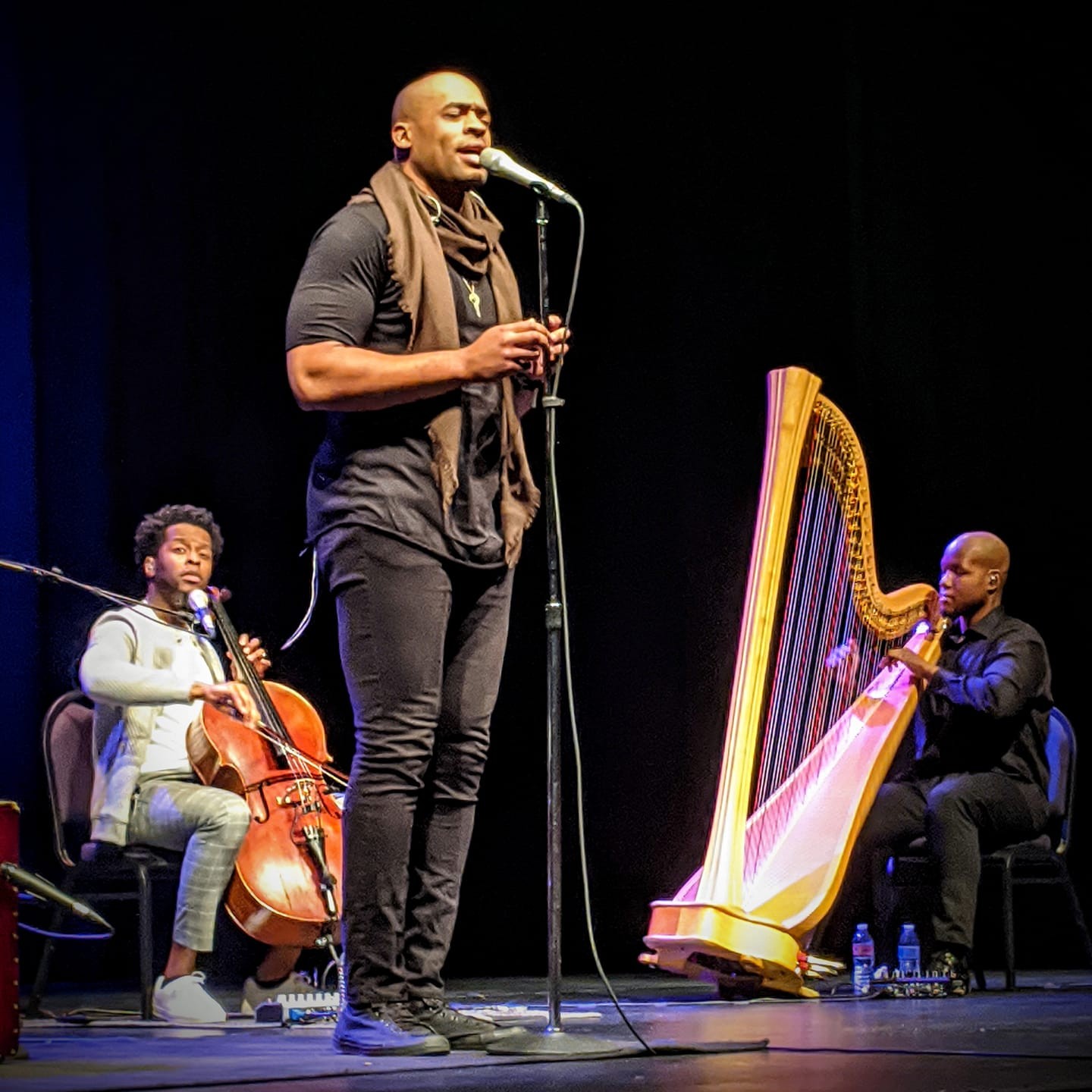
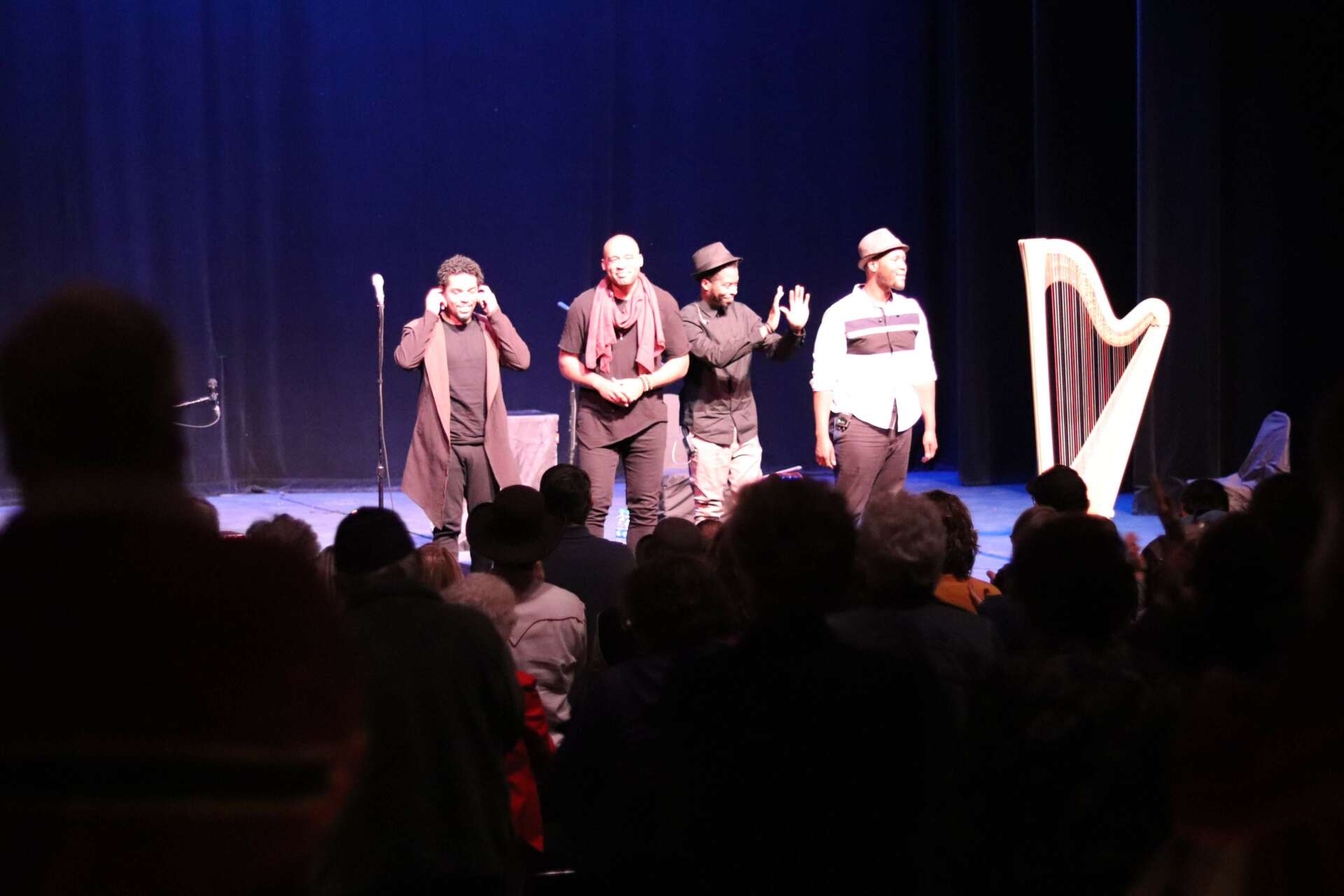
For you, what’s the most rewarding aspect of being a creative?
One of the most rewarding aspects of being an artist is that the music creates a space for genuine human connection. Music has a way of drawing people into our world who we may not otherwise have had the opportunity to connect with. And when we hear stories of how the music deeply resonates or helps someone during a difficult season of their lives, it matters to us. We hold each personal story as sacred, as they have become encouraging forces for us to continue to create, to build, and to grow even when things get difficult. What’s beautiful is that life in the arts is a cyclical experience of giving from the heart and receiving from the heart.
Contact Info:
- Website: www.sonsofserendip.com
- Instagram: @sonsofserendip, @micahchristian
- Facebook: https://www.facebook.com/SonsofSerendip/
- Linkedin: https://www.linkedin.com/in/micah-christian-4835b987
- Youtube: https://www.youtube.com/@SonsofSerendip


